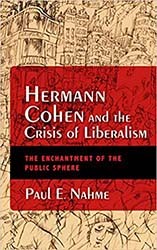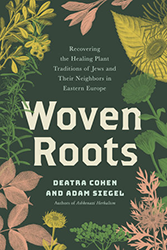Harry Freedman’s book is the first comprehensive treatment of British Jewry to have appeared in a number of years. Written primarily for a British audience, the book nonetheless raises interesting questions for American readers. Notwithstanding major differences in class and social structure between Great Britain and the US, the lives of British and American Jews have many parallels.
The subtitle sums up Freedman’s thesis about Jewish life in Britain today. While Jews have been a part of English, and later British, society for over a millennium, they have for the most part kept a low profile until recently. Britain, although not free of antisemitism, generally did not inflict on them the kinds of anti-Jewish violence prevalent in the countries from which they migrated. As they’ve achieved positions of increasing importance and status, many have gained the confidence to express their Jewish identity, but they have also experienced a new anxiety about the specter of antisemitism.
Freedman explores this paradox in nine substantial chapters that cover a variety of topics, from institutional structures to religious identification and lifestyle. Using an informal journalistic mode, Freedman offers just enough history to contextualize the book’s themes. He draws on interviews via Zoom with individual Jews, including Chief Rabbi Ephraim Mirvis, leaders of major organizations, political figures, and journalists.
American readers might find some of these institutional details a bit heavy going — it would have been interesting to hear more lay voices — but they will nevertheless find many aspects of British Jewry familiar and resonant. The issues of assimilation and intermarriage are major concerns among institutional leaders, just as they are here. While many Jews are less reticent now to identify as Jews, there has also been a significant movement toward assimilation in which Jewish identity is potentially lost or significantly redefined. Recent census data (not available when Freedman wrote his book) indicates an increase in Jewish identification, but this may be correlated with another trend in British Jewish life similar to that in the US: the growth of the population of haredim, whom the British call Strictly Orthodox (in contrast to the middle-of-the road orthodoxy of the United Synagogue, Britain’s unique and chief Jewish institution). This has resulted in a rightward trend in mainstream orthodoxy and a growing interest in non-orthodox streams.
The place of Israel in Jewish life is also paramount and fraught. The rightward political movement in Israel has troubled many British Jews, and Israel’s policies have also had a direct effect on political life in Britain, perhaps more so than in the United States. Criticism of Israel by those who identify as progressives, especially former Labour Party leader Jeremy Corbyn, has been taken as a sign of a rising antisemitism on the left. Some see this as a major reason why a large percentage of Jewish supporters of Labour defected in the 2020 elections. While Freedman addresses the issue of antisemitism in various places throughout the book, he perhaps could have provided a more systematic overview.
Judicious and balanced, Freedman’s outlook is generally optimistic — although he quotes Chief Rabbi Mirvis’s assessment of the situation in Britain (borrowed from the Israeli ambassador): “The good is getting better and the bad is getting worse.” This book contributes to understanding why that is so.





